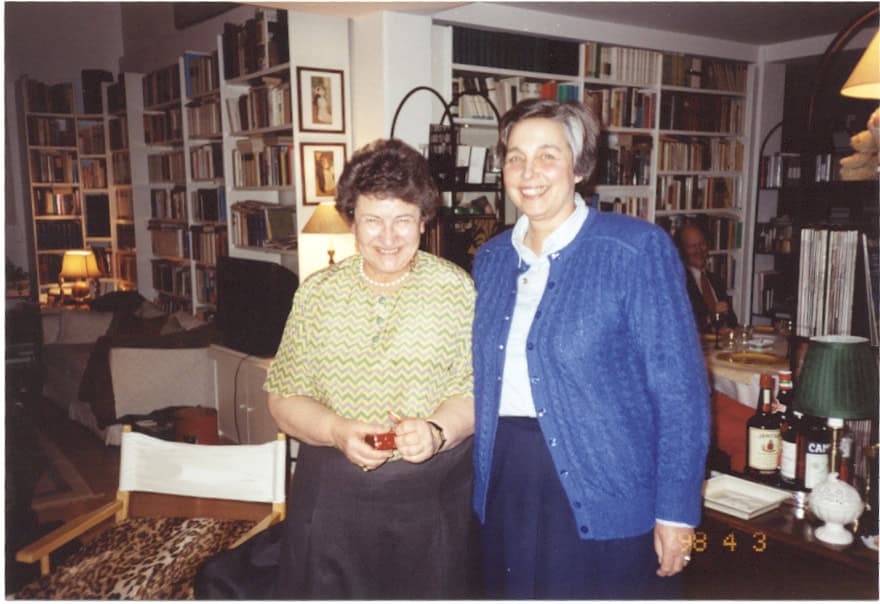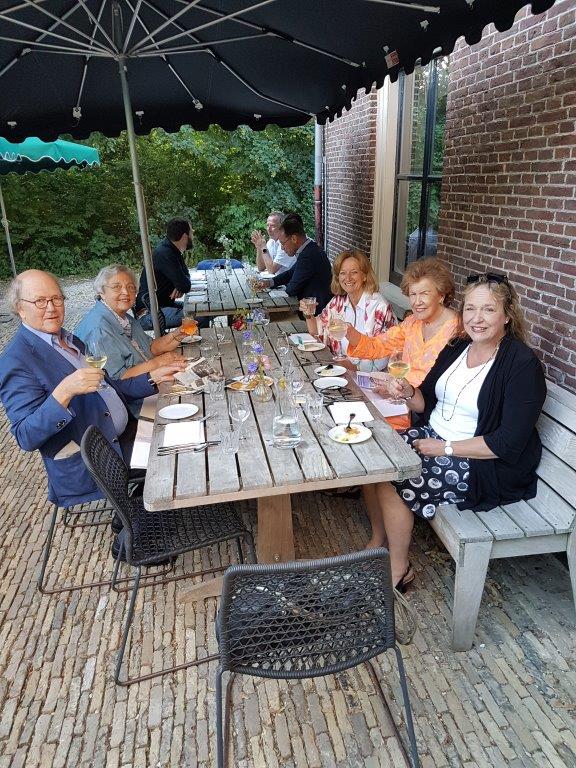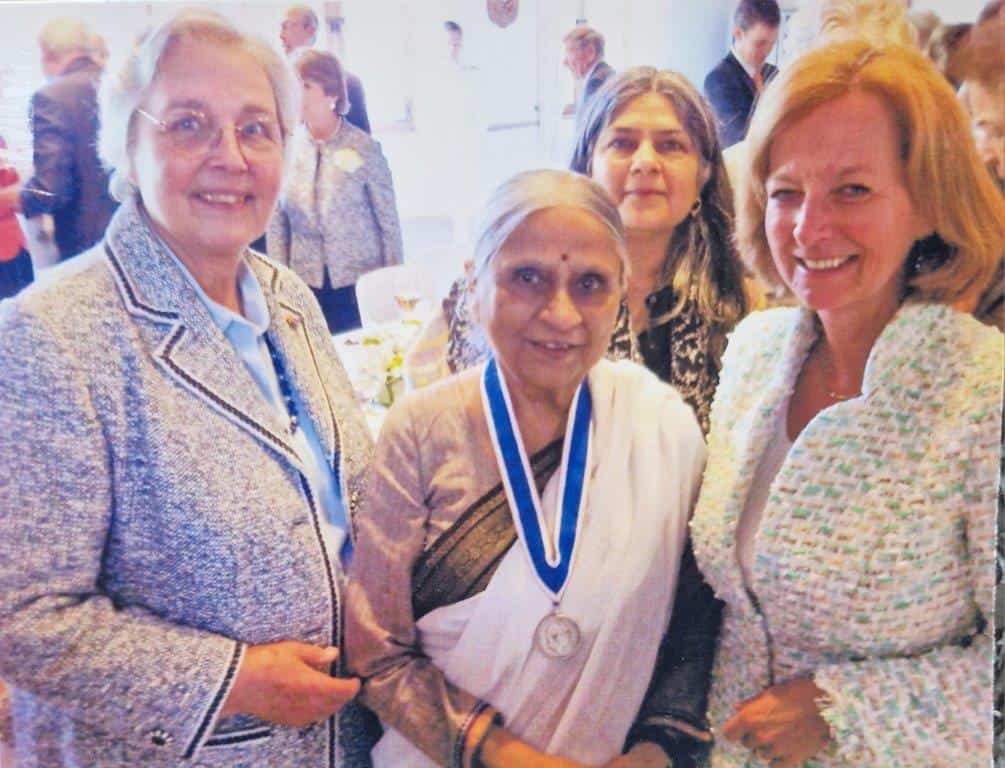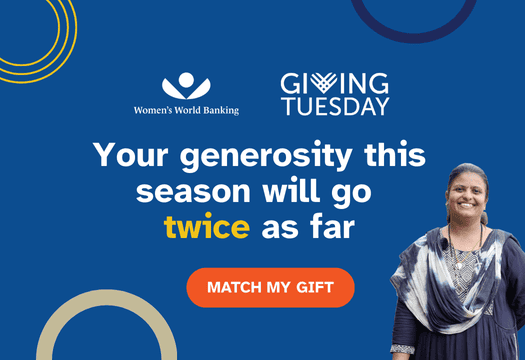To celebrate Women’s World Banking’s 45th anniversary, we are showcasing the voices of individuals from around the world who have shaped and touched Women’s World Banking journey since its inception in 1979 at Commission on the Status of Women to today!
These are stories from across Women’s World Banking’s reach from the women we serve and our customers, to allies and women in leadership who have contributed to women’s economic empowerment and financial inclusion.
A Champion for Women’s Financial Inclusion
In 1985, Pauline Kruseman was introduced to Saskia Pothof and Rudolf Mees of ING Bank, who were organizing a meeting for Women’s World Banking in the Netherlands and where met Michaela Walsh and Nancy Barry. The organization’s mission to provide small loans to women in developing countries resonated deeply with her. Inspired by the founders’ vision, Pauline joined the Dutch board of Women’s World Banking alongside influential figures such as Floris Bannier and Marleen van den Horst.
Bridging Cultures and Advocating for Women

Her dedication quickly grew, and by 1990, she attended the Global Meeting in the Dominican Republic, where she was nominated to the international Board of Women’s World Banking. She later served on the Executive Committee until 2003, together with Rosmarie Michel, Sylvia Chin, Deanna Rosenswig, and Inger Prebensen. Even as she pursued other roles, including her position as director of the Amsterdam Historical Museum, Pauline maintained critical connections with key development stakeholders. “I have always maintained my good contacts with the Ministry of Development Cooperation, so that through these contacts I was with Nancy Barry and her staff responsible for generous contributions from the Ministry all those years,” she recalls. Her diplomatic finesse and strategic vision not only elevated Women’s World Banking’s stature but also ensured that key decision-makers were consistently engaged in the mission.

Pauline’s multifaceted background in arts and culture enriched her perspective on global development. Serving on the board of the International Institute for Women’s Archives and engaging in various social initiatives, she seamlessly wove her appreciation for world cultures into her advocacy for women’s financial inclusion. “The work of Women’s World Banking immediately appealed to me at the time,” she reflects, highlighting the natural synergy between her passion for the arts and her commitment to social justice.
Pauline drew inspiration from the founders and developed deep connections with renowned leaders like Ela Bhatt, Mercedes Canalda, and Jennifer Riria. These relationships provided her with valuable insights and strengthened her commitment to advancing women’s economic empowerment. Her husband’s steadfast support was also a source of encouragement, making him an ally in her mission.
Pioneering Training and Fostering Global Collaboration
In the 1990s, Pauline played a pivotal role in launching training programs that became central to Women’s World Banking’s capacity-building efforts in developing countries. Working with experts such as Klaas Molenaar and Peter Blom, longtime CEO of the Triodos Bank, the initiative enabled women from diverse nations to share experiences and effective methods. Pauline emphasized the importance of global partnerships: “Working together with as many other organizations as possible, all over the world, who are committed to financial inclusion and economic empowerment for low-income women in developing countries, for a better future for women and their families.”
In May 2023, attending with Mary Ellen Iskenderian a special occasion at the Royal Palace in the Hague where Marilou van Golstein Brouwers, her successor at the WWB Board, got a Royal Decoration by the King and the Queen for her work for Inclusive Finance, Pauline had the opportunity to reflect with Queen Máxima on her work as the UN Secretary General’s Special Advocate for Inclusive Financial Health.

A Call to Action
Looking ahead, Pauline’s message is clear:
“With the economic and financial empowerment of women, especially in developing countries, leaders, political and others, will ‘enrich’ the lives of the communities and everybody in the communities. All those leaders should actively support these activities.“
Pauline Kruseman’s journey with Women’s World Banking underscores the profound impact of dedicated individuals in advancing women’s financial empowerment. Her story serves as an inspiration for leaders, policymakers, and change-makers to champion the cause of financial inclusion, building stronger and more resilient communities worldwide.
Women’s World Banking is dedicated to economic empowerment through financial inclusion for the nearly one billion women in the world with no or limited access to formal financial services. Using our sophisticated market and consumer research, we turn insights into real action to design and advocate for policy engagement, digital financial solutions, workplace leadership programs, and gender lens investing.
As part of our current strategy, we’ve helped provide over 86 million women in emerging markets – targeting 100 million by 2027 – access and use of financial products and services that are transforming women’s lives, households, businesses and communities, and driving inclusive growth globally.
Help us reach the nearly billion women still excluded from the formal financial system. Donate now.




